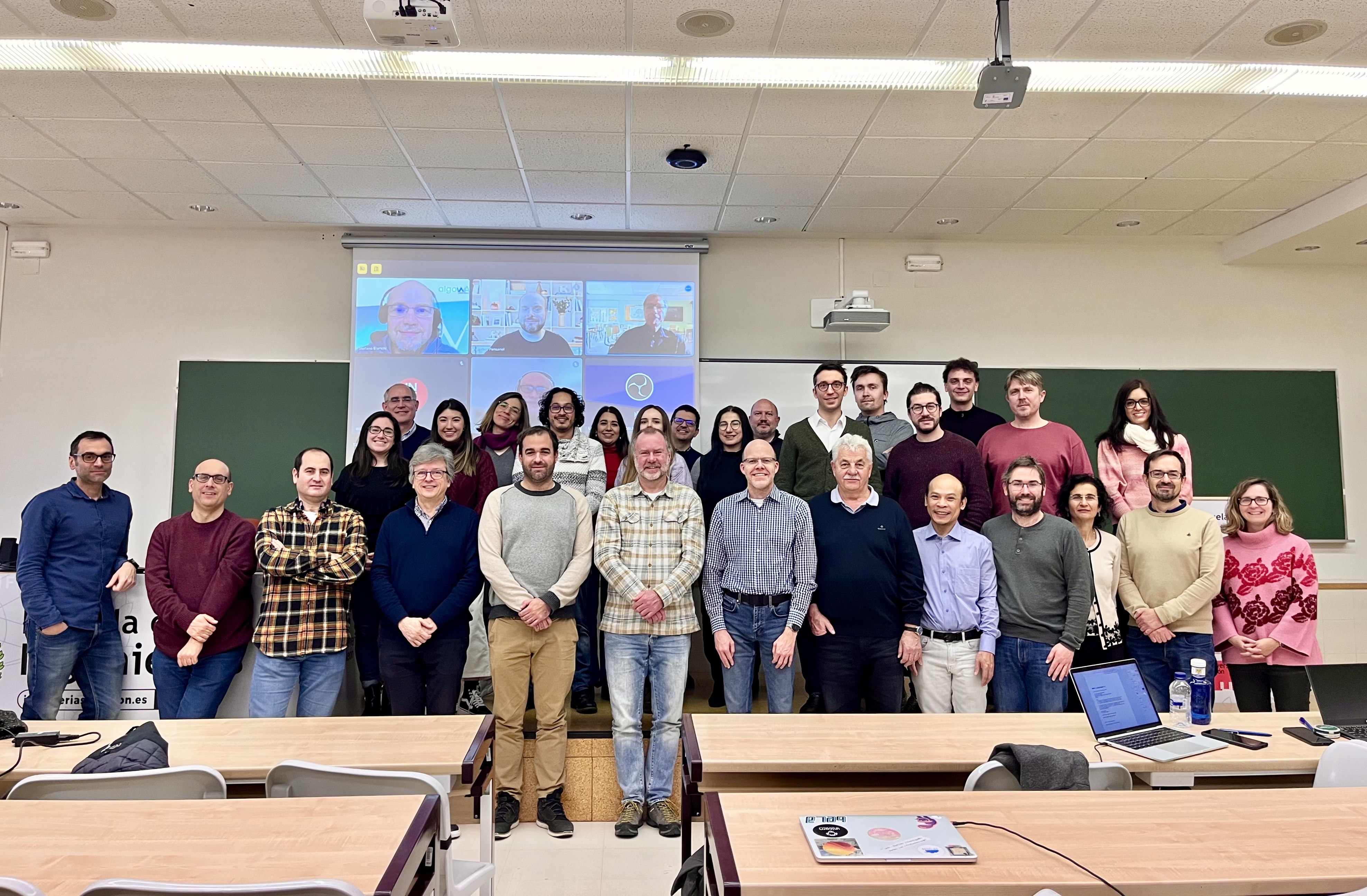IFCA (CSIC-UC) will coordinate this European research project in which 17 institutions will work until 2026
In Santander, 30 January 2024
The
European Open Science Cloud (EOSC) is already a reality, since its presentation in 2018 by the European Commission, as a tool for the by the European Commission, as a tool that provides a borderless computing and data environment within the European continent, available to within the European continent, available to everyone, without access barriers and free of charge. However, in such environments, trillions of data are used, reused, processed or stored every second, and all these transactions must be and all these transactions must comply with a set of principles, known in the field as the
FAIR
principles, which is to say that data must be principles, which are reliable, accessible, interoperable and reproducible data.
From this premise SIESTA was born (Secure Interactive Environments for Sensitive Data Analytics), a research project funded by the Horizon Europe program (European Commission) and
coordinated by the Institute of Physics of Cantabria (IFCA), a joint center of the
Spanish National Research Council (CSIC) and the
University of Cantabria (UC), together with a consortium of 17 institutions, was born from this premise: CSIC, the University of Cantabria (UC), the Institute of Interdisciplinary Physics and Complex Systems (IFISC), the National Institute of Statistics (INE), the Slovak Academy of Sciences (Slovakia), the University of León, Javier de la Cueva y Asociados, the Institut national de la santé et de la recherche médicale (INSERM), the Centre National de la Recherche Scientifique (CNRS), Radbou University (The Netherlands), the ISI Foundation, Interway, Thinlinc, AlgoWatt, the Donders Institute, the Centro de Ciencias Humanas y Sociales (CCHS, CSIC), and the Instituto de Economía, Geografía y Demografía (IEGD, CSIC).
"SIESTA is a research project that aims to develop a reliable computing platform to analyze sensitive data that cannot be shared publicly, even with people you trust, without taking certain security measures, such as medical, statistical or company data", explains IFCA researcher and project coordinator
Álvaro López.
The School of Engineering of the University of León (one of the project partners) was the venue, on January 25 and 26, for the presentation of the European project, where
45 people met in a hybrid format, between face-to-face and online, representing the partners participating in the initiative. Many of the partners met for the first time and, from now on, will work as a team in SIESTA until the end of the project in 2026.

Family photo at the end of the congress. / IFCA Communication.
Keys to SIESTA: secure access to sensitive and open data
The raw material of the project is data, and the idea is that the scientific community can share, store and reuse research data openly and in a seamless, secure computational environment. And this is where the FAIR principles come into play. In the field of science and research for example, these rules indicate that a reliable framework is in place, where access and reuse of such scientific data is appropriate and meets the required standards. Moreover, the application of these FAIR principles is one of the raisons d'être of the European Open Science Cloud.
Fields as diverse as remote sensing, climate change, engineering, logistics, medical imaging or biodiversity, which involve working with large amounts of data, already make use of the cloud and apply these FAIR parameters. However, there is still a challenge: being able to access sensitive or confidential data while preserving privacy and ease of use for research staff. There are currently alternatives to address this challenge, such as secure rooms or capsules, or data shelters, but they pose drawbacks for the development of reproducible research (research that can be reused by the scientific community), and are often not very intuitive solutions.
During the congress there was time to discuss private data, for example, in the case of demographic studies, and the problems they raise when working with personal data. The importance of treating this data independently was discussed, for example, in the case of medical data, which is handled differently in each European country.
"With SIESTA what we can achieve is that researchers who do not have access to data but who are relevant to their research can access them," explains the IFCA researcher. "For example, a researcher in artificial intelligence can access MRI data to train a better algorithm, or statistical agencies such as the INE, can analyze data in common that, for legislative or administrative reasons, can not be analyzed together and thus have better and more complete statistics", emphasizes López.
The project will be funded by 5 million euros, made available by both the European Union and the EOSC association, and the research team is part of a program of actions divided into 20 work packages (FAIR sensitive data, data privacy and anonymization tools, EOSC integration, medical imaging, epidemiology, energy, demography, or use cases), following the mission set out in the Strategic Agenda for Research and Innovation: That open science practices become the new normal, offering tools and services that allow the research community to find, access, reuse and combine scientific results, making use of federated and accessible infrastructures. In addition, it is intended that the results obtained will be sent to policy makers, through a policy brief, to serve as a roadmap for making decisions that affect the security and privacy of citizen data.
Some of the objectives that have been set these days in the presentation have gone through the desire that SIESTA is "a community that offers tools and services to researchers, within the cloud of open science, and showing the benefits it has for society, science and research. And demonstrate the importance of processing sensitive data following FAIR principles, offer anonymization tools, and seek synergies with other projects of the EOSC infrastructure (known as INFRAEOSC), such as EOSC-ENTRUST (Elixir) or TITAN (University of Murcia).
Rebeca García / IFCA Communication
